The Government Office has just issued a press release on the direction and administration of the Government and the Prime Minister on April 1, 2025 (1).
Detailed regulations for the implementation of Resolution No. 171/2024/QH15 dated November 30, 2024 of the National Assembly on piloting the implementation of commercial housing projects through agreements on receiving land use rights or having land use rights
The Government has just issued Decree No. 75/2025/ND-CP dated April 1, 2025 detailing the implementation of Resolution No. 171/2024/QH15 dated November 30, 2024 of the National Assembly on piloting the implementation of commercial housing projects through agreements on receiving land use rights or having land use rights.
This Decree details the implementation of Clause 1, Article 1, Clause 2, Clause 3, Article 3, Clause 2, Clause 3, Article 4 and Article 5 of Resolution No. 171/2024/QH15 dated November 30, 2024 of the National Assembly on piloting the implementation of commercial housing projects through agreements on receiving land use rights or having land use rights (Resolution No. 171/2024/QH15).
Applicable subjects include state agencies; real estate business organizations according to the provisions of the law on real estate business; land users according to the provisions of the Land Law.
Real estate business organizations in accordance with the provisions of law on real estate business shall exercise the rights and obligations as prescribed in Clause 2, Article 2 of Resolution No. 171/2024/QH15.
Establish, approve and publish the List of land areas planned to implement the pilot project.
The Decree stipulates that the provincial-level land management agency shall notify the registration of the need to implement the pilot project in accordance with the provisions of Resolution No. 171/2024/QH15, clearly stipulating the registration period and registration contents according to Form No. 01 in the Appendix issued with this Decree. The notification shall be posted on the information portal and electronic information page of the provincial-level People's Committee and the provincial-level land management agency.
An organization wishing to implement a pilot project shall submit a set of documents to the competent provincial land management agency, including: Registration form according to Form No. 02 in the Appendix issued with this Decree; a copy of one of the documents proving the right to use the land in case of having the right to use the land; an excerpt of the map or diagram of the location of the land proposed to implement the pilot project.
Application submission is done by one of the following methods:
Submit directly to the One-Stop Department according to the regulations of the Provincial People's Committee on receiving dossiers and returning results of handling provincial-level administrative procedures.
Submit via public postal service.
Submit on the National Public Service Portal or Provincial Public Service Portal or provincial administrative procedure settlement information system.
Within 15 days from the end of the registration period, the provincial land management authority shall review and evaluate the conditions and criteria of the land plots proposed to implement the pilot project; prepare a list of land plots expected to implement the pilot project and submit it to the provincial People's Committee.
The People's Committee at the provincial level shall submit to the People's Council at the same level for approval a Resolution promulgating the List of land areas expected to implement pilot projects as prescribed in Clause 2, Article 4 of Resolution No. 171/2024/QH15.
The People's Council at the provincial level shall consider and approve the List of land areas planned for pilot project implementation at the same time as approving the List of works and projects requiring land recovery; in case the People's Council at the provincial level has approved the List of works and projects requiring land recovery according to the provisions of Clause 5, Article 72 of the Land Law not at the same time as approving the List of land areas planned for pilot project implementation, the People's Committee at the provincial level shall submit the List of land areas planned for pilot project implementation to the People's Council at the same level for consideration and approval; including determining the area of land types under the pilot project that must change land use purposes, including areas of rice-growing land, special-use forest land, protective forest land, and production forest land.
After the Provincial People's Council approves the List of land plots planned to implement the pilot project, the Provincial People's Committee shall announce the List of land plots planned to implement the pilot project on the Provincial People's Committee's electronic information portal, and post it publicly on the electronic information portal or the website of the provincial land management agency. The announcement shall be made within 03 working days from the date the Provincial People's Council signs and issues a Notice of approval for real estate business organizations to implement the pilot project and directs the provincial land management agency to notify cases where projects do not meet the requirements to be included in the List of land plots planned to implement the pilot project. The announcement shall be made within 5 working days from the date of announcement of the List of land plots planned to implement the pilot project.
After the Provincial People's Council approves the List of land plots expected to implement the pilot project, if there is a real estate business organization proposing land plots that meet the provisions of Clause 1, Article 4 of Resolution No. 171/2024/QH15, the provincial land management agency shall continue to implement according to the regulations to propose to supplement the List of land plots expected to implement the pilot project.
Carry out investment, construction and related procedures to implement the pilot project.
According to the Decree, real estate business organizations that have land use rights or are established according to the provisions of Point d, Clause 1, Article 1 of Resolution No. 171/2024/QH15 or after completing the agreement to receive land use rights and the agreed land area is eligible to implement the pilot project according to regulations, shall carry out the procedures for approving the investment policy and simultaneously approving the investor to implement the pilot project according to the provisions of Point d, Clause 4, Article 29 and Articles 30, 31 and 32 of the Investment Law.
After the investment policy and investor approval are granted, the real estate business organization shall carry out other procedures to implement the pilot project in accordance with the provisions of law on investment, construction, housing, real estate business, land and other relevant provisions of law.
Projects of real estate business organizations that have been approved for investment policy and approved for investors or have documents from competent state agencies related to investment procedures, construction, planning and other procedures for permitting the implementation of pilot projects in cases of receiving land use rights or having land use rights before the effective date of Resolution No. 171/2024/QH15 without stating a term or stating a term but still valid do not have to re-perform procedures or re-issue existing documents.
In case the project has been approved in principle for investment but not yet approved for the investor, at the step of approving the investment in principle simultaneously with approving the investor as prescribed in Article 5 and Clause 1, Article 7, the competent authority only has to approve the investor.
Carry out land procedures to implement the pilot project
The Decree stipulates that after the pilot project is approved for investment policy, the procedures for land recovery, land allocation, land lease, land use purpose conversion, land lease contract signing, land registration, and issuance of land use right certificates shall be carried out in accordance with the provisions of current land law, including:
a- In case the land use right belongs to a real estate business organization whose investment policy is approved at the same time as the investor's approval, the procedure for changing the land use purpose shall be carried out for the land area that must change its land use purpose;
b- In case the organization is using the land with a capital contribution, joint venture, or association contract to establish a project enterprise but the land use right is not transferred, the land shall be returned to the State so that the State can reclaim the land and allocate or lease the land to the enterprise established to implement the project; the organization is not compensated for the assets on the land when the State reclaims the land. In case the land use right is allowed to be transferred, the procedure for registering land changes to the enterprise established to implement the project shall be carried out;
c- In case the project of a real estate business organization is established by organizations using land to implement a commercial housing project before the effective date of this Decree or a pilot project as prescribed in this Decree on the area of a production or business establishment that must be relocated due to environmental pollution, an establishment that must be relocated according to construction planning or urban planning but the land to implement the project has not been granted a Certificate, the organization must relocate and return the land to the State so that the State can recover and allocate or lease the land to the real estate business organization established by the organization that must relocate to implement the project.
In case the organizations that must relocate have contributed capital in the form of land use rights to a real estate business organization in accordance with the provisions of the law on land, the real estate business organization shall change the land use purpose in accordance with the provisions.
Determining land prices and performing financial obligations on land for pilot projects shall comply with the provisions of the law on land, the law on taxes, fees, charges and other relevant legal provisions.
This Decree takes effect from April 1, 2025 to March 31, 2030.
Amending and supplementing a number of articles of Decree No. 35/2021/ND-CP detailing and guiding the implementation of the Law on Investment under the public-private partnership model
The Government issued Decree No. 71/2025/ND-CP amending and supplementing a number of articles of Decree No. 35/2021/ND-CP detailing and guiding the implementation of the Law on Investment under the public-private partnership model (PPP Law). Decree No. 71/2025/ND-CP amends and supplements Clause 1, Article 18 of Decree No. 35/2021/ND-CP on the time for appraising pre-feasibility study reports of PPP projects in the direction of shortening the time.
Specifically, the time for appraising the pre-feasibility study report of a PPP project is calculated from the date of the decision to establish the Appraisal Council or from the date the unit assigned to appraise receives a complete and valid dossier or from the date of receiving the appraisal report in the case of hiring an appraisal consultant, specifically as follows:
a) Projects under the Prime Minister's authority to decide on investment policies: appraisal time is shortened from no more than 45 days to no more than 30 days;
b) Projects under the investment policy decision authority of the Minister, head of central agency, other agency, provincial People's Council, provincial People's Committee: no more than 14 days (old regulation is no more than 30 days);
c) For projects that only require an economic-technical report on construction investment: no more than 10 days.
In case the project requires speeding up the progress, the Chairman of the Appraisal Council decides on the appropriate appraisal time.
In addition, Decree No. 71/2025/ND-CP also shortens the time for appraisal of PPP project feasibility study reports as stipulated in Clause 1, Article 26 of Decree No. 35/2021/ND-CP.
According to the new regulations, the time for appraising the feasibility study report of a PPP project is calculated from the date of the decision to establish the Appraisal Council or from the date the unit assigned to appraise receives a complete and valid dossier or from the date of receiving the appraisal report in case of hiring an appraisal consultant, specifically as follows:
a) Projects under the approval authority of the Prime Minister: appraisal time is shortened from no more than 90 days to no more than 30 days;
b) Projects under the approval authority of the Minister, head of central agency, other agency, Chairman of Provincial People's Committee: no more than 14 days (old regulation is no more than 60 days), for projects specified in Clauses 2a, 2b and 2c, Article 11 of the PPP Law: no more than 10 days.
In case the project requires speeding up the progress, the Chairman of the Appraisal Council decides on the appropriate appraisal time.
Decision on investment policy for PPP projects covering 2 or more provinces
Regarding the procedure for deciding on investment policies for PPP projects under the authority of the Provincial People's Committee, Article 12 of the PPP Law (amended in Clause 5, Article 3 of Law No. 57/2024/QH15) supplements regulations on the authority to decide on policies of the Provincial People's Council and the Provincial People's Committee, including regulations on decentralization of authority to decide on investment policies for PPP projects under the management of two or more provincial-level administrative units from the Prime Minister to localities.
Therefore, Decree No. 71/2025/ND-CP amends and supplements Clause 4, Article 21 of Decree No. 35/2021/ND-CP on deciding on investment policies for PPP projects covering two or more provincial-level administrative units.
Specifically, for PPP projects implemented in two or more provincial-level administrative units under the provisions of Point b, Clause 4 or Point b, Clause 4a, Article 12 of the PPP Law, the Prime Minister shall delegate authority to the Minister of the sectoral management ministry to agree on the assignment of an agency as the competent authority. The decision on investment policy for PPP projects shall be made as follows:
a) The People's Committees of the provinces where the project is implemented discuss and agree on the project implementation proposal, including the following contents: project name, scale, location, type of PPP project contract, preliminary total investment, state capital in the PPP project and division of responsibility for balancing and allocating the budget of each locality;
b) For projects under the investment policy decision authority of the Provincial People's Council as prescribed in Point b, Clause 4, Article 12 of the PPP Law, the Provincial People's Committees of the localities where the project is implemented shall report to the Provincial People's Council for consideration and agreement on the content prescribed in Point a of this Clause.
Based on the written consent of the Provincial People's Council, the Provincial People's Committee of the localities where the project is implemented shall agree with the sector management ministry on assigning a locality as the competent authority;
c) For projects under the authority of the provincial People's Committee to decide on investment policies as prescribed in Point b, Clause 4a, Article 12 of the PPP Law, the provincial People's Committees of the localities where the project is implemented shall agree with the sector management ministry on assigning a locality as the competent authority. In cases where the project requires the use of state capital to participate in the PPP project, the provincial People's Committees of the localities shall report to the provincial People's Council before agreeing with the sector management ministry on assigning a locality as the competent authority;
d) The provincial People's Committee, which is approved by the sector management ministry as the competent authority of the project as prescribed in Point b or Point c of this Clause, shall organize project preparation and submit it to the competent authority for decision on investment policy as prescribed in Point b Clause 4 or Point b Clause 4a Article 12 of the PPP Law;
d) In case the budget for compensation, site clearance, support, resettlement; and support for temporary construction is allocated from the local budget of each locality, the People's Committees of the provinces shall unify and report to the People's Councils of the provincial level on the division into component projects for compensation, site clearance, support, resettlement; and support for temporary construction at the same time as the contents specified in Point b or Point c of this Clause for each locality to implement in accordance with the provisions of the law on public investment."
Provincial People's Committee approves investment policy decision within no more than 10 days
Decree No. 71/2025/ND-CP also supplements Point c, Clause 6, Article 21 of Decree No. 35/2021/ND-CP stipulating the time for approving the decision on investment policy for a project from the date of receiving a complete and valid dossier. Accordingly, for projects under the authority of the provincial People's Committee to decide on investment policy: no more than 10 days; for projects in cases where only a construction investment economic-technical report is required: no more than 05 working days.
Removing difficulties for investors in raising capital and arranging finance
In order to remove difficulties for investors in mobilizing capital and arranging finance for the entire PPP project, Decree No. 71/2025/ND-CP amends Clause 4, Article 76 of Decree No. 35/2021/ND-CP in the direction of removing the regulation that the contracting agency only pays a maximum of 50% of the volume value for sub-projects using public investment capital in PPP projects (when the project enterprise has completed the works belonging to the sub-project); instead, it supplements the payment regulations for sub-projects using public investment capital as follows:
In case a PPP project has sub-projects using public investment capital as prescribed in Point a, Clause 5, Article 70 of the PPP Law, payment for completed works and work items of the sub-project shall be made according to the progress, value and completed volume agreed upon between the contracting agency and the investor and project enterprise in the project contract.
Regulations on mechanism and time for adjusting average retail electricity price
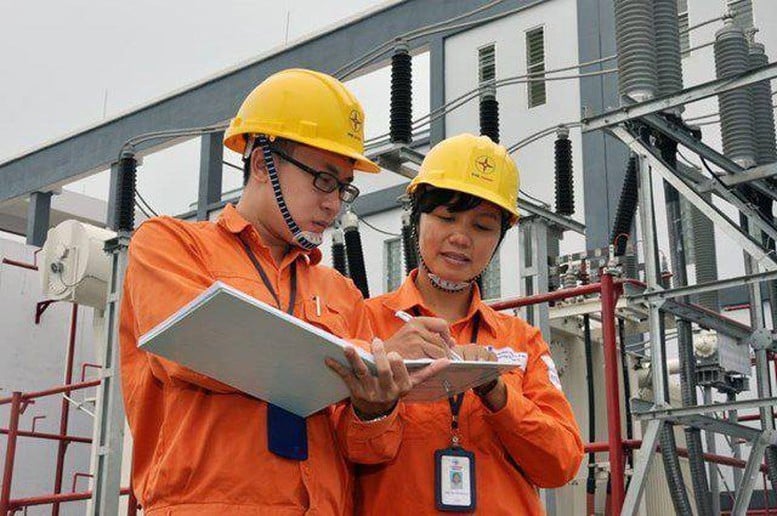
The Government issued Decree No. 72/2025/ND-CP dated March 28, 2025, stipulating the mechanism and time for adjusting average retail electricity prices. This Decree takes effect from the date of signing (March 28, 2025).
Principles for adjusting average retail electricity prices Decree No. 72/2025/ND-CP stipulates that every year, after Vietnam Electricity Group publicly announces the cost of electricity production and business in year N-2, the average retail electricity price in year N is reviewed and adjusted according to objective fluctuations in input parameters of all stages (power generation, power transmission, power distribution - retail, power system operation and management of electricity market transactions, power system ancillary services and industry operation - management) and the allocation of other costs not included in the electricity price.
During the year, the average retail electricity price is reviewed and adjusted based on updated electricity generation costs, electricity purchase costs from power plants providing ancillary services according to basic input parameters in the electricity generation stage and other costs not included in the electricity price.
The Decree clearly states: When the average retail electricity price decreases by 1% or more compared to the current average retail electricity price, the electricity price is allowed to be adjusted down accordingly.
When the average retail electricity price increases by 2% or more compared to the current average retail electricity price, the electricity price is allowed to be adjusted upward.
The average retail electricity price is calculated according to the provisions of Article 4 of this Decree. In case the calculated average retail electricity price is outside the price frame, it shall only be considered for adjustment within the price frame prescribed by the Prime Minister. Vietnam Electricity Group shall be allowed to increase or decrease the average retail electricity price within the price frame according to the mechanism prescribed in Articles 5 and 6 of this Decree.
In case the average retail electricity price needs to be adjusted to be 10% or higher than the current average retail electricity price, the Ministry of Industry and Trade shall preside over and coordinate with relevant ministries and agencies to inspect, review and report to the Government for consideration and comments. If necessary, the Ministry of Industry and Trade shall coordinate with relevant ministries and agencies to report to the Price Management Steering Committee before reporting to the Government.
Adjustment of average retail electricity price must be carried out publicly and transparently.
Average retail electricity price
The Decree stipulates that the average retail electricity price is established on the basis of the cost of electricity generation, the cost of purchasing electricity transmission services, electricity distribution - retail, power system operation and management, electricity market transaction management, electricity system auxiliary service costs, industry operation - management costs, other allocated costs and only includes costs directly serving the production and supply of electricity of Vietnam Electricity Group to ensure the ability to operate, supply electricity and meet investment needs according to the approved plan, in which the costs of each stage take into account the cost deductions according to regulations.
The average retail price of electricity in year N (GBQ) is determined according to the following formula:
In there:
CPĐ: Total cost of power generation in year N (VND); determined by the following formula:
CPĐ = CTTĐ + CĐMT + CBOT + CTTN + CNLTT + CNK
CDVPT: Total cost of power plants providing auxiliary services to the power system in year N (VND), including the cost of testing the power plants;
CTT: Total cost of purchasing electricity transmission services in year N (VND);
CPP-BL: Total cost of electricity distribution - retail and standard profit in year N (VND), including the cost of mobilizing backup generators of electricity customers to supplement the supply to the national power system in urgent situations that seriously threaten the ability to ensure electricity supply;
General C: Total operating and management costs of the industry and standard profit for year N (VND);
CDD: Total cost of purchasing services for power system operation and power market transaction management in year N (VND);
Other costs: Total other costs not included in the electricity price, are costs that are allowed to be calculated but not included in the electricity price, including the unallocated revaluation exchange rate difference, the exchange rate difference not recorded and paid to power plants according to the agreement in the power purchase contract, calculated and allocated to the average retail electricity price of year N (VND);
ATP: Total expected commercial electricity output for year N (kWh).
Regulations on adjusting average annual retail electricity prices
The Decree stipulates that based on the power supply and power system operation plan for year N issued by the Ministry of Industry and Trade, the electricity production and business costs for year N-2 of Vietnam Electricity Group, the estimated results of electricity production and business in year N-1 (in case the electricity production and business costs for year N-1 have not been announced), before January 25 of year N, Vietnam Electricity Group shall calculate the average retail electricity price according to the above formula, carry out the document requirements as prescribed and perform as follows:
a) In case the calculated average retail electricity price decreases by 1% or more compared to the current average retail electricity price, Vietnam Electricity Group is responsible for reducing the average retail electricity price by the corresponding level. Within 05 working days from the date of adjustment, Vietnam Electricity Group is responsible for preparing a report to the Ministry of Industry and Trade for inspection and supervision;
b) In case the average retail electricity price needs to be adjusted to increase from 2% to less than 5% compared to the current average retail electricity price, Vietnam Electricity Group shall prepare a dossier of the average retail electricity price plan and report to the Ministry of Industry and Trade for inspection, review and comments. Within 15 working days from the date of receiving the complete dossier of the average retail electricity price plan from Vietnam Electricity Group, the Ministry of Industry and Trade shall be responsible for providing written comments. Vietnam Electricity Group shall decide to increase the average retail electricity price after receiving comments from the Ministry of Industry and Trade. Within 05 working days from the date of adjustment, Vietnam Electricity Group shall be responsible for reporting to the Ministry of Industry and Trade for supervision;
c) In case the average retail electricity price needs to be adjusted to increase from 5% to less than 10% compared to the current average retail electricity price, Vietnam Electricity Group is allowed to adjust the average retail electricity price to the corresponding level after reporting and being approved by the Ministry of Industry and Trade. Within 15 working days from the date of receiving the complete dossier on the average retail electricity price plan of Vietnam Electricity Group, the Ministry of Industry and Trade is responsible for responding in writing for Vietnam Electricity Group to implement. Within 05 working days from the date of adjustment, Vietnam Electricity Group is responsible for reporting to the Ministry of Industry and Trade for supervision;
d) In case the average retail electricity price needs to be adjusted to increase by 10% or more compared to the current average retail electricity price, based on the electricity price plan submitted by Vietnam Electricity Group, the Ministry of Industry and Trade shall preside over the inspection, review and send it to relevant ministries and agencies for comments. Based on the comments of relevant ministries and agencies, the Ministry of Industry and Trade shall synthesize and report to the Government for consideration and comments. If necessary, the Ministry of Industry and Trade shall coordinate with relevant ministries and agencies to report to the Price Management Steering Committee before reporting to the Government.
Regulations on adjusting average retail electricity prices during the year
The Decree stipulates that before the first 25 months of the second, third quarter and the fourth quarter of the fourth quarter, Vietnam Electricity Group determined the actual commercial electricity output of the previous quarter and the total commercial commercial electricity output from the beginning of the year, estimated the remaining monthly commercial electricity output of the year; Determine the cost of the previous quarter, the cost of generating power from the beginning of the year (including the cost of buying electricity from the auxiliary service providers), estimated the cost of electricity generation of the remaining months in the year according to the basic input parameter in the electricity generation stage and updating other costs that have not been included in the average electricity retail price to calculate the average electricity retail price according to the above formula) and do the following:
a) In case after calculating the update, the average average electricity retail price is 1% or more compared to the current average electricity retail price, the Vietnam Electricity Group is responsible for adjusting the average electricity retail price reduction at the corresponding level. Within 05 working days from the date of implementation, Vietnam Electricity Group is responsible for making a dossier to report to the Ministry of Industry and Trade for inspection and supervision;
b) In case after calculating the update, the average electricity retail price needs to be adjusted higher than the current average electricity retail price from 2% to under 5%, Vietnam Electricity Group makes a dossier of the average retail price plan to report to the Ministry of Industry and Trade to check, review and comment. Within 15 working days from the date of receiving the complete dossier of the average electricity retail price plan of Vietnam Electricity, the Ministry of Industry and Trade is responsible for writing in writing. Vietnam Electricity Group decided to adjust the average increase in electricity retail price after the Ministry of Industry and Trade had opinions. Within 05 working days from the date of implementation, Vietnam Electricity Group is responsible for reporting to the Ministry of Industry and Trade for supervision;
c) In case after calculating updates, the average electricity retail price needs to be adjusted higher than the current average electricity retail price from 5% to under 10%, Vietnam Electricity Group is allowed to adjust the average electricity retail price at the corresponding level after the report and approved by the Ministry of Industry and Trade. Within 15 working days from the date of receiving the complete dossier of the average electricity retail price plan of Vietnam Electricity, the Ministry of Industry and Trade is responsible for replying in writing to the Vietnam Electricity Group to implement. Within 05 working days from the date of implementation, Vietnam Electricity Group is responsible for reporting to the Ministry of Industry and Trade for supervision;
d) In case after calculating the update, the average electricity retail price needs to be adjusted higher than the current average electricity retail price of 10% or more, on the basis of the average electricity retail price plan submitted by the Vietnam Electricity Group, the Ministry of Industry and Trade shall assume the prime responsibility for inspecting, reviewing and collecting opinions of relevant ministries and agencies. Based on the comments of the relevant ministries and agencies, the Ministry of Industry and Trade summarizes and reports to the Government for consideration and comments. In case of necessity, the Ministry of Industry and Trade shall coordinate with the concerned ministries and agencies to report to the Steering Committee for price management before reporting to the Government.
Adjust the average electricity retail price every 3 months
The Decree clearly stipulates that, in case the average retail price needs to be adjusted, but the Vietnam Electricity Group does not adjust, the Ministry of Industry and Trade is responsible for requiring Vietnam Electricity
Quan. Vietnam Electricity Group is responsible for complying with the request of the Ministry of Industry and Trade within 05 working days from the date of receipt of the request.
If there are errors in the results of calculating electricity prices as prescribed, the Ministry of Industry and Trade is responsible for requesting Vietnam Electricity Group to stop adjusting or adjusting the average electricity retail price. Vietnam Electricity Group is responsible for complying with the request of the Ministry of Industry and Trade within 05 working days from the date of receipt of the request.
As a rule, the period of adjusting the average electricity retail price is at least 03 months from the latest electricity price adjustment.
Regulations on the price frame of the average electricity retail price
Deputy Prime Minister Bui Thanh Son signed Decision No. 07/2025/QD-TTg dated March 31, 2025 stipulating the price bracket of the average electricity retail price.
This Decision stipulates the price frame of the average electricity retail price as prescribed at Point b, Clause 3, Article 50 of the Electricity Law No. 61/2024/QH15. This decision applies to agencies, organizations and individuals participating in electricity and electricity activities.
According to the decision, the price frame of the average electricity retail price (excluding value added tax) is as follows:
The minimum average electricity retail price is VND 1,826.22/kWh;
The maximum average electricity retail price is VND 2,444.09/kWh.
When there is a large fluctuation of the parameters calculating the price bracket, the cost of producing and trading in electricity and the request for allocation of costs that have not been included in the average electricity retail price, the Ministry of Industry and Trade shall calculate and adjust the price bracket of the average retail price, submit to the Prime Minister for consideration and decision.
This decision takes effect from the date of signing issued (March 31, 2025).
Decision No. 02/2023/QD-TTg of February 3, 2023 of the Prime Minister on the price bracket of the average electricity retail price expires from the effective date of this Decision.
The conclusion of Deputy Prime Minister Tran Hong Ha works with Hanoi City on urging, disbursing public investment plan in 2025, ensuring traffic order and safety and treatment of air pollution

The Government Office issued Notice No. 143/TB-VPCP dated April 1, 2025 conclusions of Deputy Prime Minister Tran Hong Ha working with Hanoi City on urging and disbursing public investment plans in 2025, ensuring traffic order and safety and treatment of air environment pollution.
Strive to complete the disbursement of 100% of the assigned public investment plan
Specifically, on the situation of implementation and disbursement of investment capital in May 2025, the Deputy Prime Minister noted and praised the leaders of the Hanoi People's Committee thoroughly and strictly implemented the directions of the Government and the Prime Minister on promoting the disbursement of public investment capital. The city has actively developed a detailed disbursement schedule, assigning specific responsibilities to departments, localities and project investors to strive to complete the disbursement of investment capital plan in 2025 that the Prime Minister was VND 87,130 billion (1.13 times higher than the 2024 plan and equal to 10.5% of the total capital of the country).
However, until March 24, 2025, Hanoi City had just disbursed 5,052.29 billion dong, reaching 5.8% of the plan and lower than the general average of the country. The main reason is due to difficulties and obstacles in site clearance (determining the origin of land and land prices, people have not agreed with the compensation plan); Some projects using ODA capital have not yet completed investment procedures, adjusting investment policies, differences in law provisions and international contracts, standards, unit prices, norms ....
In order to promote the disbursement of investment capital in the coming time and strive to complete the disbursement of 100% of the assigned plan, the Deputy Prime Minister basically agreed with the opinions of the Hanoi People's Committee, the relevant ministries and agencies and suggested the city focus on carrying out a number of key tasks:
Focusing on the participation of both the political system and organizations and individuals to implement drastically and effectively the Government's resolutions, the Council No. 16/CD-TTg dated February 18, 2025 and Directive No. 05/CT-TTg dated March 1, 2025 of the Prime Minister and the guiding documents of the Government's leaders on tasks, solutions to discharge difficulties and problems.
The city drastically carried out the site clearance, promoting the construction progress of key projects and works. Speeding up the implementation of investment preparation procedures, investment decisions, selection of contractors of key national projects and works, construction investment projects in the area.
At the same time, developing disbursement plans for each project; Request the investor to report the disbursement progress of each project on a monthly, quarterly and compliance with the disbursement plan of each month and quarter. Strengthen inspection and supervision at the scene; The acceleration of the disbursement of public investment capital must be associated with the quality assurance of works and projects, not to occur negatively, losses, waste and group interests.
The city must assign leaders to take responsibility for each project, tighten the scale, progress and investment efficiency; bring the disbursement results into criteria to assess the level of task completion to review, reward and discipline strictly and promptly. Seriously consider disbursement results as one of the important bases to assess the level of completion of the 2025 task of individual heads, units and organizations involved; Proactively review and promptly transfer capital of slow disbursement projects to supplement other projects with good disbursement and need to accelerate the prescribed progress, especially important and urgent projects, strategic infrastructure projects and national and national connectivity projects.
Hanoi strengthens measures to control and reduce traffic congestion
Regarding the task of ensuring traffic order and safety, the city leaders have directed to drastically implement urgent solutions such as overcoming the situation of large traffic flow causing infrastructure overload; overcoming traffic conflicts at buttons with high traffic density; Quickly overcome traffic incidents, the effects of rain and storms causing local flooding; solve congestion in school gates and hospitals focusing high transportation density during rush hour; Propaganda to raise the awareness of compliance with traffic laws for road users ... In the first quarter of 2025, there were 306 traffic accidents in the city, causing 177 deaths and 199 injuries. Compared to the same period in 2024 decreased by 81 cases (-20.93%), an increase of 01 death (+0.57%), decreased by 115 injured people (-36.62%). Handling 03/37 traffic congestion points.
However, the situation of traffic congestion in the city is still complicated, especially in the time of the ceremony, New Year, peak hours at the main axes and belts in and out of the city when the demand for travel increases and the number of overloaded vehicles compared to the infrastructure; There is also inadequacies in arranging traffic lights and traffic flow at some intersections with high traffic density.
In the coming time, in order to ensure traffic order and safety in Hanoi, the Deputy Prime Minister assigned the Hanoi People's Committee to preside over and coordinate with the ministries: Police, Construction, Justice, Agriculture and Environment, Science and Technology to continue synchronously implementing key solutions.
Specifically, the city must urgently develop plans and implement solutions to implement the model of "Traffic Safety City"; strengthen measures to control and reduce traffic congestion; Reasonable planning of parking lots (underground parking, smart parking lots) to reduce the situation of rampant parking on sidewalks and roadbeds. Building a roadmap to reduce motorbikes in the inner city, collecting car charges into the central area during rush hour to limit the number of individual vehicles on some routes. Adjust the signal light, flexible lane according to the peak time frame to reduce congestion. Reasonable planning/return area, especially around the hospital and school area to avoid congestion.
Along with that is the development of public transportation systems. Increasing the opening of more electric bus routes and urban railways, improving service quality to attract people to use. Develop smart transportation system, use AI to analyze traffic status and propose a reasonable regulation plan.
Strengthen sanctions for traffic violations in accordance with the Government's Decree No. 168/2024/ND-CP of December 26, 2024. Strengthen patrol and control, strictly handle violations such as crossing red lights, wrong lane, using alcohol when driving, racing, hammock causing public disorder, homemade tricycles ...
The city has researched and proposed that the competent authority included in the regulation of mandatory inspection of motorbike emissions, eliminating old and unsafe old cars; Raise awareness of traffic participants. Strong propaganda, building traffic culture, especially for young people, students and students in the school. Use communication channels such as social networks and press to raise community awareness about safe transportation.
The Deputy Prime Minister assigned the Ministry of Public Security to preside over and coordinate with the Ministry of Construction to urgently complete the project to consolidate the model of the National Traffic Safety Committee and the Traffic Safety Committee of provinces and cities directly under the Central Government; Report to the Prime Minister before May 31, 2025.
Control and treatment of pollution to bring Hanoi more and more green
Regarding control and handling of air environment pollution, the Deputy Prime Minister suggested that Hanoi City should study and accurately assess the sources of air pollution in the city to have overall solutions to control, thoroughly handle urban embellishment, contributing to bringing Hanoi to be more green and more beautiful; In which, if the cause of pollution is the source of emissions from road vehicles, it is necessary to limit with economic regulatory tools, not banned by administrative measures.
Deputy Prime Minister assigned the Ministry of Construction, the Ministry of Agriculture and Environment to support Hanoi City to promulgate emissions standards for cars and motorbikes; soon deploy motorbike emissions inspection; Continue to control sources of pollution from construction sites, burn straw, post -harvest agricultural by -products; Develop an inter -provincial coordination regulations to manage the air quality of Hanoi and neighboring localities.
The Ministry of Agriculture and Environment shall assume the prime responsibility for, and coordinate with relevant agencies to urgently develop a project to set up a Steering Committee on resolving air pollution for the Capital area, in which it is necessary to clearly identify the operating mechanism, assign specific tasks for each ministry, branch and local; clearly identify necessary mechanisms and policies and competent authorities; thoroughly researching international experience; Report to the Prime Minister for consideration and decision in April 2025.
Policy research to promote the rapid implementation of railway projects
The Prime Minister Pham Minh Chinh requested a research to propose mechanisms and policies to promote the rapid implementation of railway projects.
Recently, the Government Electronic Portal has summarized the article of the Labor Electronic Newspaper on March 27, 2025 on "High -speed railway, opportunities for modern technology" to report to the Prime Minister for consideration and direction.
Regarding the above issue, in Document No. 2712/VPCP -CN dated April 1, 2025, Prime Minister Pham Minh Chinh assigned Prime Minister Tran Hong Ha to direct the Minister of Construction to propose full mechanisms and policies to serve as a basis for promoting the implementation of high -speed rail projects on the North - South axis, Lao Cai - Hanoi - Hai Phong, Lang Son Railway Project - Lang Son, Lang Son Railway Project, Lang Son Railway Project, Lang Son Railway Project, Lang Son Railway Project, Lang Son Railway Project, Lang Son Railway, Lang Son Railway Project, Lang Son Railway Project - Lang Son Railway Project, Lang Son Railway Project, Lang Son Railway Project, Lang Son Railway Project, Lang Son Railway Project, Lang Son Railway Project, Lang Son Railway Project, Lang Son Railway Project, Lang Son Railway Project.
The People's Committee of Hoa Binh Province is the owner of the investor of the Hoa Binh - Moc Chau highway section

The Government Office has just issued Document 2547/VPCP -CN conveying the direction of Deputy Prime Minister Tran Hong Ha on the investment plan of the Hoa Binh - Moc Chau highway section.
Specifically, the Deputy Prime Minister agreed to assign the People's Committee of Hoa Binh Province to be the governing body to manage and invest in the construction of the Hoa Binh - Moc Chau highway section (Km 0 - Km 19) with the scale of completion according to the 4 -lane highway standard.
Hoa Binh Provincial People's Committee urgently implements investment preparation and organizes the implementation of the project in accordance with the relevant law, avoiding losses and wastefulness./.
Source: https://baolangson.vn/chi-dao-dieu-hanh-cua-chinh-phu-thu-tuong-chinh-phu-ngay-01-4-2025-1-5042857.HTML


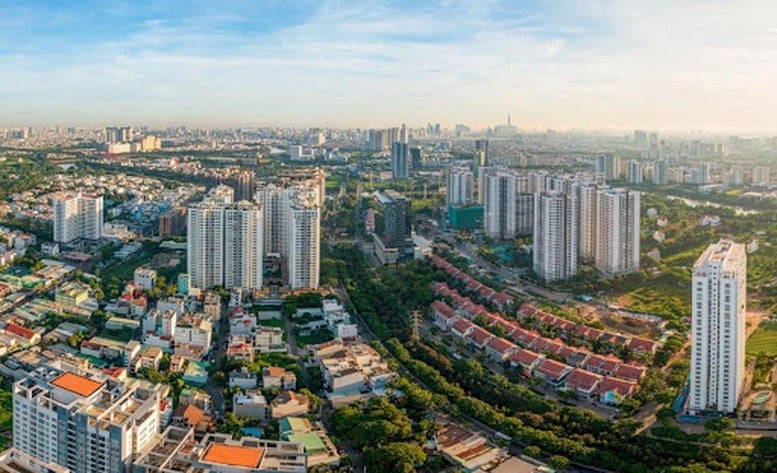
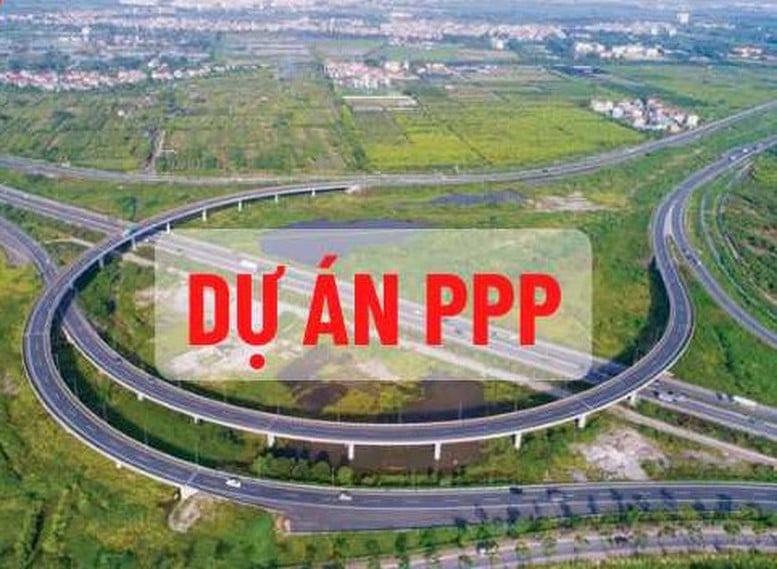

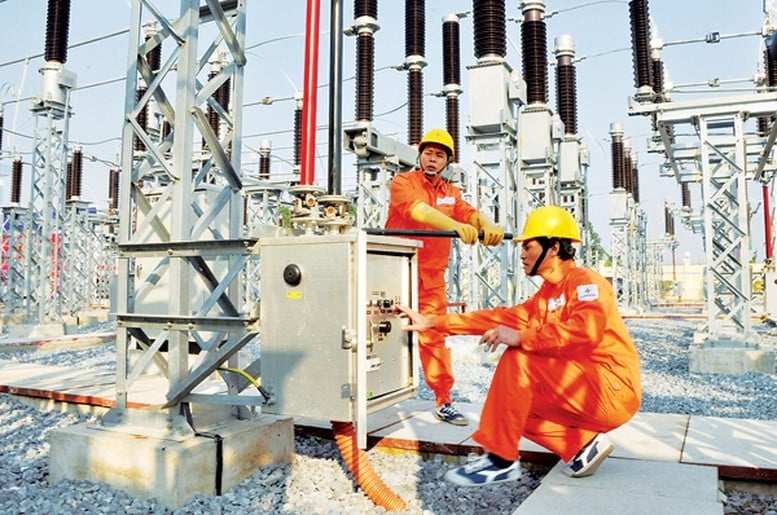
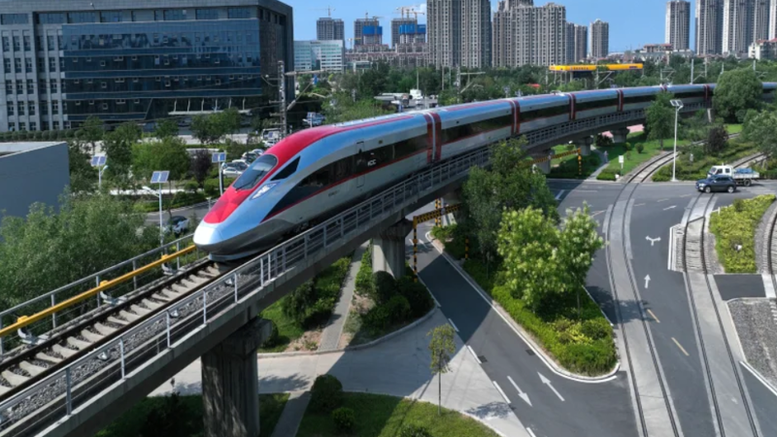
![[Photo] National conference to disseminate and implement Resolution No. 66-NQ/TW and Resolution No. 68-NQ/TW of the Politburo](https://vphoto.vietnam.vn/thumb/1200x675/vietnam/resource/IMAGE/2025/5/18/adf666b9303a4213998b395b05234b6a)
![[Photo] Prime Minister Pham Minh Chinh chairs meeting on science and technology development](https://vphoto.vietnam.vn/thumb/1200x675/vietnam/resource/IMAGE/2025/5/17/ae80dd74c384439789b12013c738a045)
![[Photo] More than 17,000 candidates participate in the 2025 SPT Competency Assessment Test of Hanoi National University of Education](https://vphoto.vietnam.vn/thumb/1200x675/vietnam/resource/IMAGE/2025/5/17/e538d9a1636c407cbb211b314e6303fd)







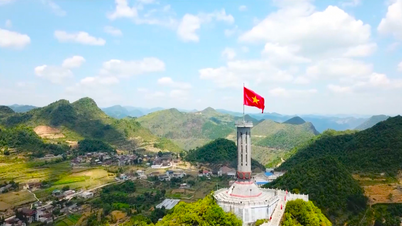
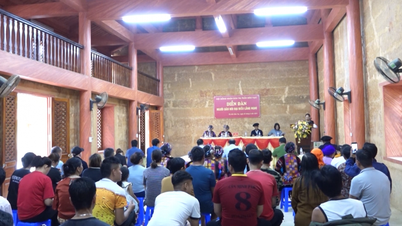
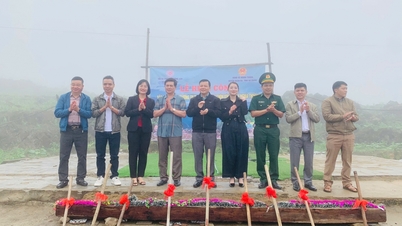
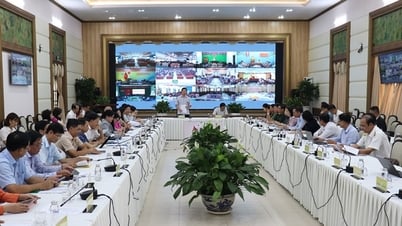
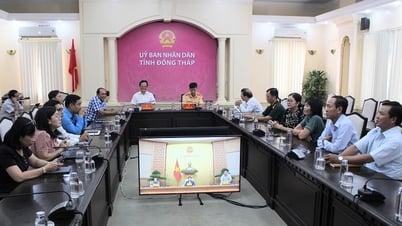
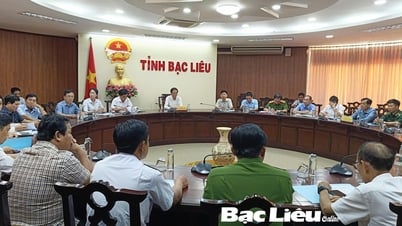
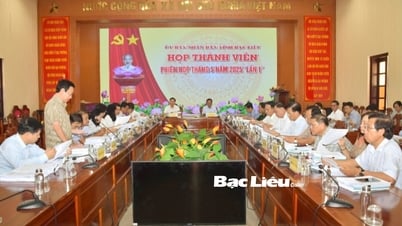
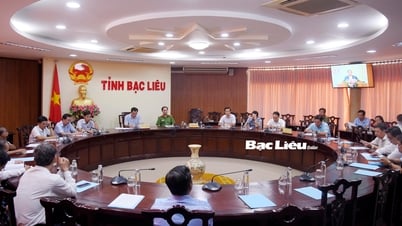
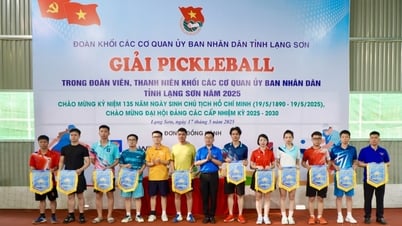






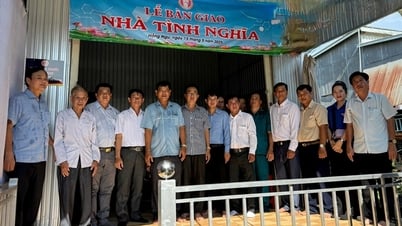


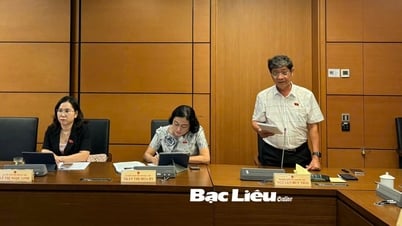
![[Infographic] Numbers about the 2025 High School Graduation Exam in Dong Thap Province](https://vphoto.vietnam.vn/thumb/402x226/vietnam/resource/IMAGE/2025/5/17/c6e481df97c94ff28d740cc2f26ebbdc)
![[Photo] Readers line up to visit the photo exhibition and receive a special publication commemorating the 135th birthday of President Ho Chi Minh at Nhan Dan Newspaper](https://vphoto.vietnam.vn/thumb/1200x675/vietnam/resource/IMAGE/2025/5/17/85b3197fc6bd43e6a9ee4db15101005b)


























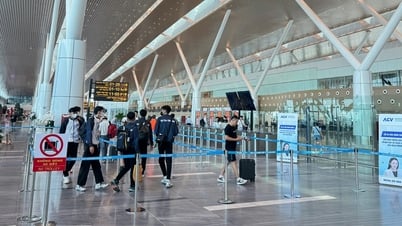




















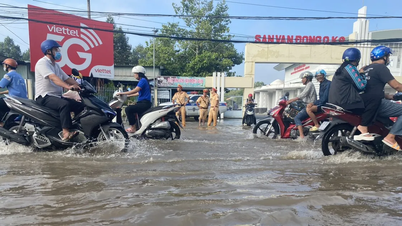
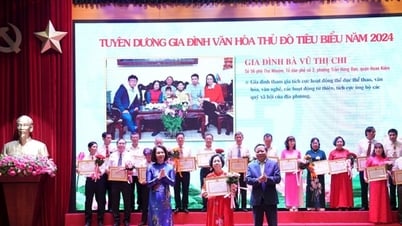


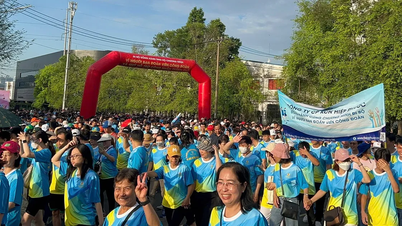


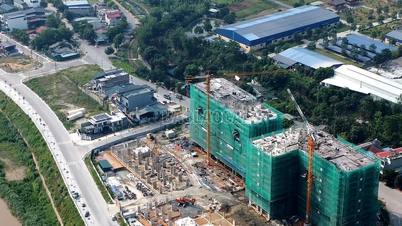








Comment (0)